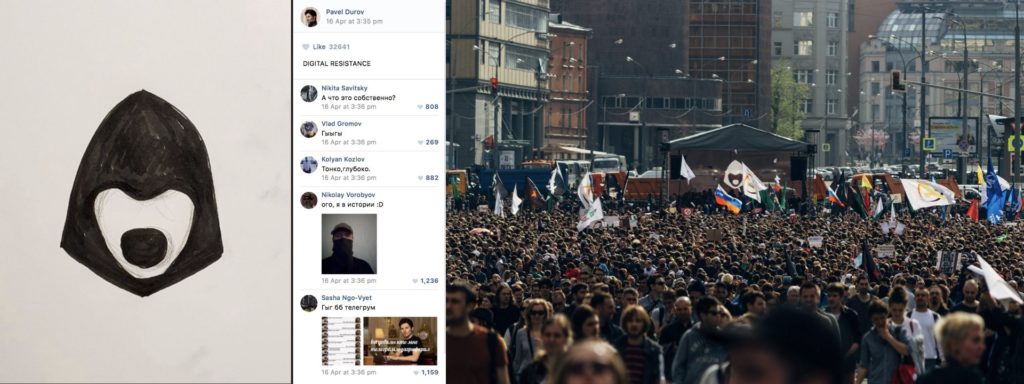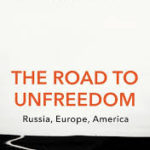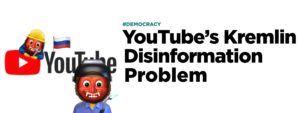
DFRLab
Facebook will require extra checks from people buying advertisements on political issues ranging from abortion and guns, to education and foreign policy, as the social network tries to make it harder for foreign adversaries to manipulate elections, the FT reports:
The world’s largest social network has unveiled a preliminary list of 20 different “national issues of public importance”, which stretch from the contentious such as immigration and the environment, to broad categories such as “values” and government reform. Advertisers wishing to promote messages on any side of these issues in the US will now have to prove to Facebook that there is a US resident behind their page and tell the company who is funding the political ads.
 Vladimir Putin’s animus against the West is based on his conviction that “we’re out to get him,” says Michael McFaul, President Barack Obama’s ambassador to Russia from 2012 to 2014, and author of the new book, From Cold War to Hot Peace.
Vladimir Putin’s animus against the West is based on his conviction that “we’re out to get him,” says Michael McFaul, President Barack Obama’s ambassador to Russia from 2012 to 2014, and author of the new book, From Cold War to Hot Peace.
“Whether the current Hot Peace is better or worse depends on which part of the Cold War we’re talking about, and in this dimension it’s worse for a couple of reasons,” he tells MacLeans:
- One: The technology to penetrate our society has grown exponentially since the Cold War, and to steal information, there’s much more capability than they had before.
- Two: The same thing is true for propaganda, and disinformation, and fake news. And that technology is getting better and better, and it’s scary in my mind what is coming. When I listen to my friends here in Silicon Valley about things that they project for the ability to make videos that will look as real as real videos, but saying very different things—that’s the next frontier of these propaganda wars, and the Russians are investing in that.
In the two weeks since Russian authorities began banning Telegram App, the Russian #DigitalResistance movement grew from small scale flash mobs to a noteworthy rally that was broadcasted by Navalny Channel, notes @DFRLab (above). The symbols of the movement have rich social and historical context that may help in mobilizing Russians who cherish internet freedom….Read More →
 The European Commission is finally calling out Russia for its information warfare, according to Radio Free Europe. According to the new communique, the EU appears to be putting its gloves on to start fighting back against mass online disinformation campaigns that are widely used by domestic and foreign actors to sow distrust and increase social tensions, resulting in serious security risks. However, the communique is still lagging behind considering the fact that Russian military doctrine explicitly recognizes information warfare as its domain, StopFake reports.
The European Commission is finally calling out Russia for its information warfare, according to Radio Free Europe. According to the new communique, the EU appears to be putting its gloves on to start fighting back against mass online disinformation campaigns that are widely used by domestic and foreign actors to sow distrust and increase social tensions, resulting in serious security risks. However, the communique is still lagging behind considering the fact that Russian military doctrine explicitly recognizes information warfare as its domain, StopFake reports.

Because Russia is fundamentally a poor country, our conflict with the Kremlin is about will-power and coordination, not about means, notes CEPA’s Edward Lucas:
But our vulnerabilities to the Kremlin’s cocktail of money, propaganda, cyber-attacks, and intimidation matter not only because Vladimir Putin’s regime exploits them to weaken us. Soon they will be used by China too, on a far greater scale than hitherto….
Strategic Relativism
Employing a crooked media, and KGB-inspired disinformation campaigns, Russia practices what Yale University historian Timothy Snyder calls a foreign policy of “strategic relativism.”
“Russia cannot become stronger,” he writes in The Road to Unfreedom, “so it must make others weaker. The simplest way to make others weaker is to make them more like Russia.”
Russia’s concerted disinformation campaign against the West is sowing confusion and distrust and undermining democratic institutions from Ukraine to the United States, says the U.S. Institute of Peace. Pulitzer Prize-winning author Anne Applebaum and USIP Executive Vice President William Taylor today discussed the challenges to the West from Russian aggression and the weapons of disinformation and disruption, and what the United States and its allies need to do to respond.
The West is taking action to counter Russian disinformation efforts, notes the Alliance for Securing Democracy:
- The U.K. is planning a series of international summits this year to call for a “comprehensive strategy to combat Russian disinformation and urge a rethink over traditional diplomatic dialogue with Moscow.” Luke Harding explains that the Skripal case illustrates how the Kremlin has abandoned conventional diplomacy, and Moscow’s tactics now include “sarcasm, denial, innuendo, and noisy counter-accusation.”
- Estonian Foreign Intelligence Service Director General Mikk Marran adds that the Kremlin believes “creating confusion that splits unity and trust among Western countries will give Russia greater freedom of action, and the ability to shape decisions more favorably on its terms.”
- Separately, the U.S. Department of State announced the establishment of the Global Engagement Center’s (GEC) Technology Series to counter foreign propaganda and disinformation, which will convene some of the country’s experts to fight against foreign propaganda and disinformation.
 Meanwhile, EUvsDisinfo revealed that before the launch of a new fact-checking initiative, a very similar site with the same name and almost the same visual identity appeared by NewsVoice – a site known for spreading pro-Kremlin disinformation narratives and conspiracies.
Meanwhile, EUvsDisinfo revealed that before the launch of a new fact-checking initiative, a very similar site with the same name and almost the same visual identity appeared by NewsVoice – a site known for spreading pro-Kremlin disinformation narratives and conspiracies.
As harmful as conspiracy theory videos are to the public discourse, state-sponsored disinformation super-charged by YouTube’s recommendation algorithms presents an even greater threat to the video sharing platform and its users. DFRLab adds….Read More →







